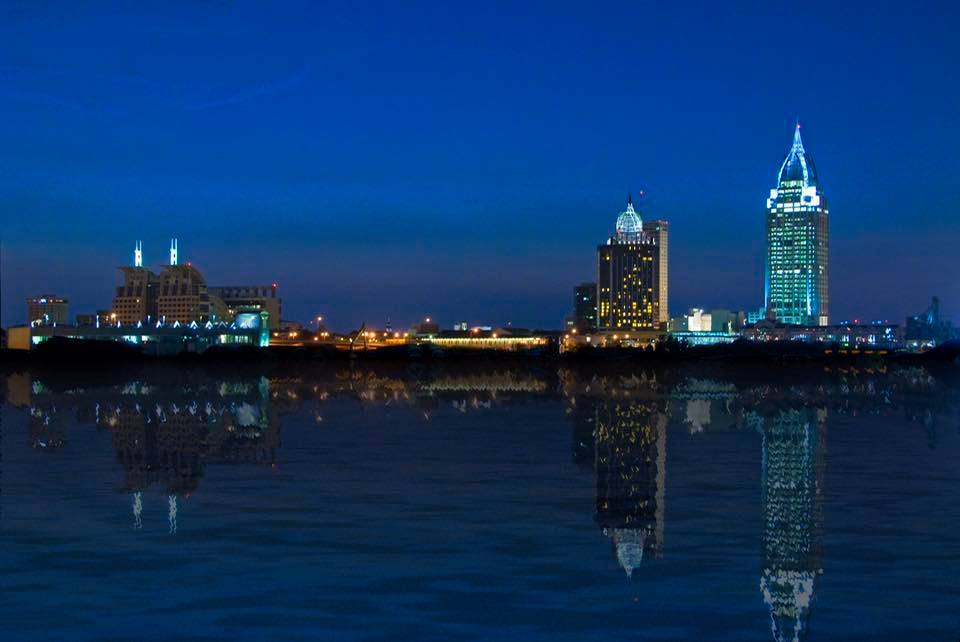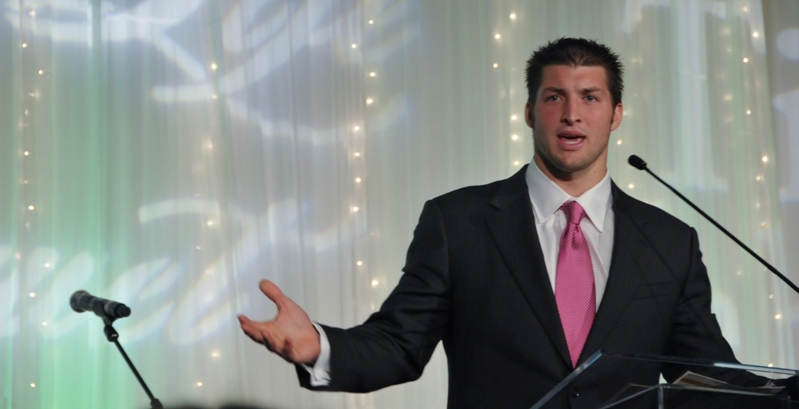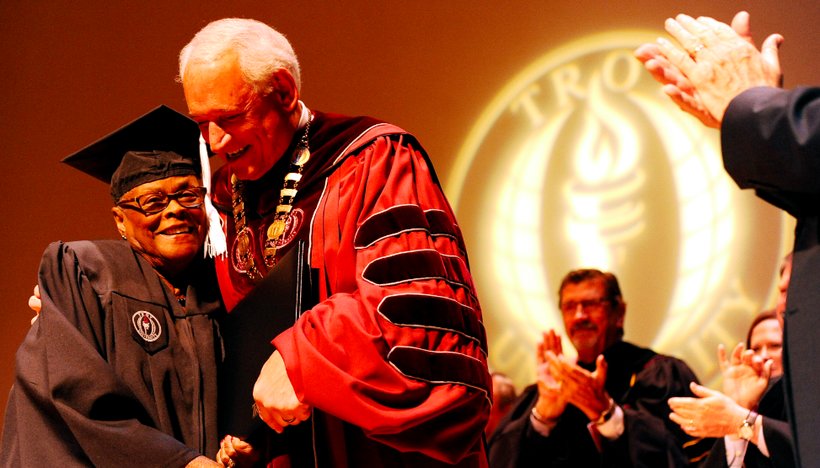As racially-charged violence has swept the country in recent months, Alabama has been conspicuously quiet. The handful of demonstrations organized in Alabama’s largest cities have been peaceful, low-key affairs, and radical activists’ attempts to stoke racial tensions at the state’s flagship university sputtered.
In Mobile, a black teenager who had apparently stolen a car was shot and killed by a white police officer, who said the teen reached for a gun. It was the kind of incident that has led to riots in other cities. But Mobile’s majority-black citizenry — which elected a white mayor in 2013 — patiently supported their city’s leadership and awaited the outcome of the investigation, which seems to have found that the officer acted appropriately.
And all of this peace in spite of a certain Alabama sports website and liberal political blog at times actively stoking the tensions.
There are media outlets in Alabama that would love to see Birmingham turn into Ferguson or Baltimore so they'd have a shot at a Pulitzer.
— Cliff Sims (@Cliff_Sims) July 11, 2016
So why is it that Alabama — a state that has endured so much racial strife in decades past — has been relatively tranquil at a time when the rest of the nation seems to be descending into chaos?
I was thinking about that question as I scrolled through my Facebook feed this weekend. Then I stumbled across this picture, which was posted by A.J. Johnson, a Birmingham-area resident who happens to be black.
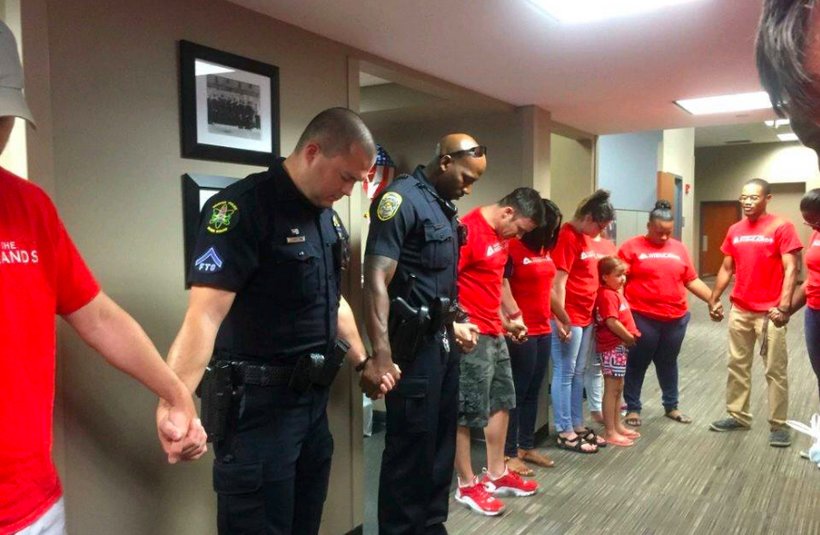
“Had a great ‘Serve Day’ today,” the photo’s caption read. “Praying with and for those who serve us daily.”
What is “Serve Day,” I wondered.
A quick search revealed that it was exactly what it sounds like — an organized day of service, which had been put together by Church of the Highlands.
Here’s how the church explained it on their website:
We serve others by demonstrating God’s love in practical ways by caring for the felt needs within our communities and sphere of influence. Simple and practical acts of kindness can open hearts to the love of Jesus for both those being served and those serving.
Further scrolling through my Facebook timeline revealed another image that stuck out to me.
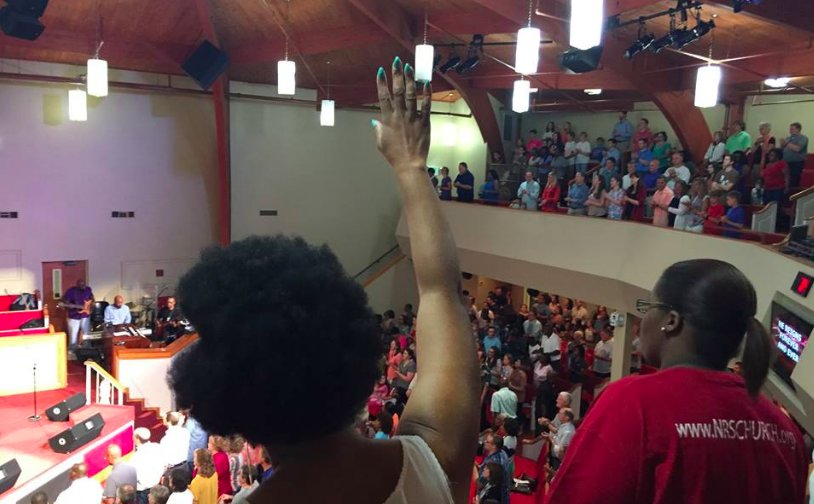
The Rev. Martin Luther King, Jr. once said that 11 a.m. on a Sunday morning is “the most segregated hour in this nation,” and yet here was an image of hundreds of white Alabamians and black Alabamians worshipping together. As it turns out, the majority white congregation from The Church at Brook Hills in suburban Birmingham and the majority black congregation from New Rising Star Missionary Baptist Church in Eastlake had responded to recent events by organizing a joint prayer service.
“From the very first moment, as Pastor Thomas welcomed us, there was a palpable eagerness and excitement in the room,” wrote Matt Mason, pastor of the Church at Brook Hills. “And then the singing began. I don’t know that I’ve experienced anything like it. There were a few moments that I had to let myself just turn around and take it all in – to watch us sing… To see the evening close with a room full of people hugging one another (no Christian side hugs – the real deal – old school hugs). It was truly a glimpse of heaven.”
It was at this moment that things became more clear to me.
This state has endured a lot of racial strife over the years. And maybe we’re tired — tired of the politics of division and the media that feeds off of it. Maybe we’re ready for reconciliation — real reconciliation. Not the kind that dismisses our differences, but acknowledges them and tries to understand. The kind that listens first. The kind that is slow to anger. The kind that recognizes the fact that all of us, regardless of race, sex or socioeconomic status, are unified by a few core concerns — faith, family, community and work.
All of this has brought me to the conclusion that Alabama is in a unique position to lead during this tumultuous time in our country’s history for two primary reasons:
Number one, because of what we’ve been through.
“The cradle of the Civil Rights movement” knows more about racial strife than perhaps any other place in America. The journey of reconciliation has been slow, and it’s not over, but we continue to endure, to push forward.
Number two, faith still matters here.
As the saying goes, “racism isn’t a skin problem, it’s a sin problem.” And while statistics show the rest of the country slowly moving away from religion, faith remains an integral part of life in Alabama.
As I continued to think through this, I remembered a video that was emailed out to Troy University’s entire student body by chancellor Jack Hawkins, Jr.
The stirring 98-second video, which can be viewed below, shows Harvard Business School professor Clay Christensen explaining his belief that the American republic works in large part because most people not only believe they are accountable to society, but that they are ultimately accountable to God.
Here’s a text excerpt from the video:
Some time ago I had a conversation with a Marxist economist from China. He was coming to the end of a Fulbright fellowship here in Boston, and I asked him if he’d learned anything that was surprising or unexpected. And without any hesitation he said, “Yeah, I had no idea how critical religion is to the functioning of democracy. The reason why democracy works,” he said, “it is not because the government was designed to oversee what everybody does, but rather democracy works because most people most of the time voluntarily choose to obey the law. And in your past most Americans attended a church or synagogue every week and they were taught there by people who they respected.”
My friend went on to say that Americans followed these rules because they had come to believe that they were not just accountable to society, they were accountable to God.
Alabama’s relative peace during this tumultuous time can be attributed to several factors, but perhaps at it’s core it comes down to the fact that most of the state’s residents still believe we’re accountable to God. Unfortunately, that may be the most radical idea in America today.








